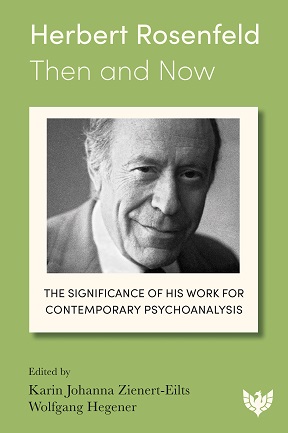Herbert Rosenfeld – Then and Now: The Significance of His Work for Contemporary Psychoanalysis

Book Details
- Publisher : Karnac Books
- Published : 2024
- Pages : 272
- Category :
Psychoanalysis - Catalogue No : 97390
- ISBN 13 : 9781800131934
- ISBN 10 : 1800131933
Reviews and Endorsements
This beautifully constructed book describes Herbert Rosenfeld’s groundbreaking theoretical and technical contributions to the psychoanalytic understanding of psychotic processes in the individual and in society in the context of his personal history, so emblematic of the sociopolitical turmoil of Europe in the middle of the twentieth century. It will be invaluable to clinicians who treat borderline and psychotic patients and who struggle to understand the dominance that destructive processes can have on the human mind. It will also be of great interest to students of social and political science; the book is an outstanding example of the application of psychoanalytical thinking to the understanding of historical and contemporary political movements and institutions.
Vic Sedlak, training and supervising analyst and President of the British Psychoanalytical Society
Herbert Rosenfeld, one of the first to conduct psychoanalysis with psychotic patients, comes to life in this book. The editors have spared no effort in gathering records and testimonies: letters, key articles, and recollections and critical engagements from numerous colleagues, together with reminiscences from his daughter Angela Rosenfeld. Documentation is impeccable. Several contributions build on Rosenfeld’s groundbreaking concept of “destructive narcissism”, so useful clinically and extended, mostly by others, to political and social phenomena. His own seminal application of this concept to the Third Reich is included: the closing remarks in a 1984 presentation to the German Psychoanalytical Association in Wiesbaden. (The complete lecture in English is published here for the first time.) As someone who participated in Rosenfeld’s casuistic seminars in Heidelberg in the early 1980s, I feel very much put back in touch with the warm human being I knew — and with the teacher whose intuition, rooted in vast experience, never ceased to amaze me.
Helen Schoenhals Hart, training and supervising analyst of the German Psychoanalytical Association (DPV) and of the San Francisco Center for Psychoanalysis (SFCP)
This is an amazing book that traces the work of Herbert Rosenfeld, his personal life and biography, his pioneering work with borderline and psychotic patients as well as his conceptual thinking. It contains an article by Rosenfeld himself and sketches his influence as a supervising analyst in different countries. Special emphasis is put on the sociopolitical dimension of his work on destructive narcissism. The editors and authors are renowned analysts who are familiar with Rosenfeld’s thinking and clinical practice. Angela Rosenfeld contributes a moving personal view of her father. The book includes a new preface from John Steiner, added to Irma Brenman Pick’s foreword to the German edition. An appendix contains many documents and photographs of Herbert Rosenfeld and his family. In my view, this book is a must-read for all those who are interested in Herbert Rosenfeld and the development of Kleinian thought.
Prof Heinz Weiss, head of the Medical Department and member of the Directorate of the Sigmund-Freud-Institute, Frankfurt a.M., Chair of the Education Section of the International Journal of Psychoanalysis

